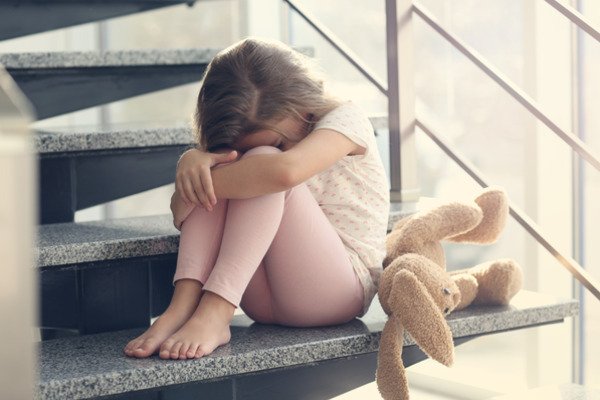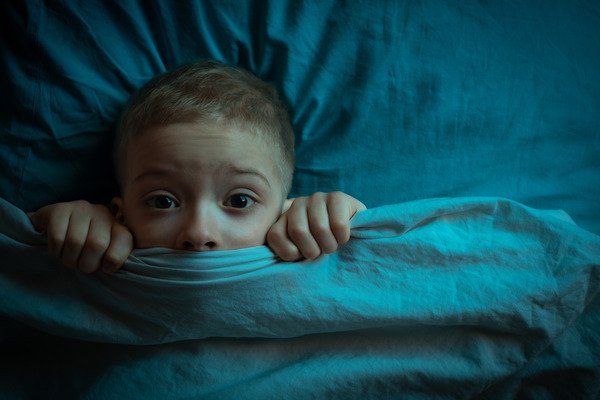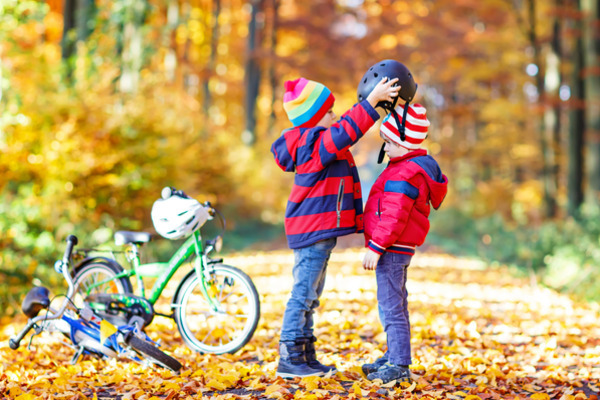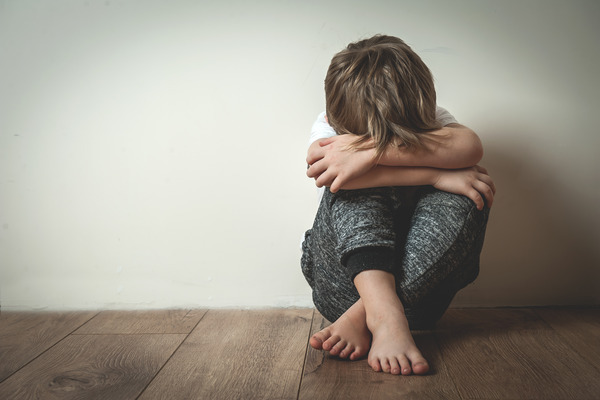Do you think your children suffer from childhood depression? Are your children sad? Discover the main symptoms and causes of childhood depression. Detecting it in time is vital for your health.
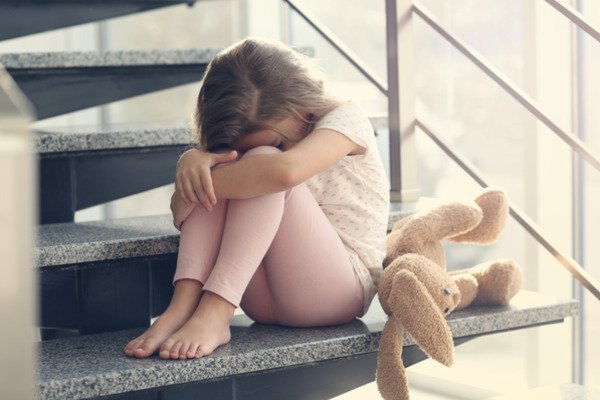
Believe that the children do not get depressed It is a common mistake, which has caused many parents to confuse the symptoms of this disease with a bad attitude or simply that the children are sad. The importance of early detection of this condition, detecting its causes and preventing them is essential, in order to avoid risk situations such as childhood suicides, in many cases.
“A child without a smile is like a tree without leaves”
What is childhood depression?
Many children may feel certain fears and worries. In fact, seeing them sad some days is completely normal. This is because these sensations can appear at different times in development. For example, young children may feel very distressed because they are away from their parents. But, when these feelings become too routine in the children’s daily lives, we could be talking about childhood depression
Is depression possible in children from 8 to 12 years old?
There are many people who think that have depression It is only for adults. In reality, both children and adolescents can suffer from this disorder. On the other hand, it is a fact that if a child seems sad it does not necessarily mean that she has depression. On the other hand, if this sadness becomes too persistent and interferes with routine activities, it may be a sign that we are facing a psychological problem.
Symptoms of childhood depression
The childhood depression It is not only visible in the fact that children are sad, but there are different depressive symptoms that we can visualize to detect this pathology in our children.
- Persistent sadness: As has been mentioned, the depressive symptoms in children They are different from those of adults, the common trait being the presence of a sad, empty or irritable mood accompanied by somatic or cognitive changes that affect their functional development.
- Aggressiveness: The depression in children It is linked to emotions such as fear and anger, along with feelings of irritability. Normally, parents associate these attitudes with bad behavior. When depressive states are persistent in children, they usually have anger attacks or even reflect their bad state through a conflictive attitude.
- Disinterest: If a persistent and generalized disinterest is observed in the child for different types of activities that he or she previously performed or liked. In this way, the depression in children It can be detected by seeing how the attitudes of the little ones change.
- Bad habits: Children with a childhood depression They end up acting in an unhealthy way. So much so that a pronounced loss of hunger can be observed as well as sleeping too much or too little.
- Fatigue: Continuous fatigue can appear both on a school day with extracurricular activities and if it is a holiday in which you have been at home or doing quiet activities. This can even be seen if you get tired when doing daily activities such as washing or dressing.
- They express negative feelings: When a child suffers from childhood depression this expresses feelings of sadness, guilt, worthlessness or is very negative.
- Difficult to focus: Many times the depressive state It has the consequence that children cannot develop intellectually in any aspect. In this way, children’s sadness can affect their school performance.
- Repetitive thoughts of death or suicide: Children asking about death is a common trait in all childhoods. But when this becomes a persistent theme, it can be a sign of a childhood depression
- Suffering from physical discomfort: Children who continually complain of physical discomfort and these do not have a medical explanation could be that we are dealing with a depressive state or a mental illness. minor depression
- Feel very afraid: Childhood terrors or fears are common in childhood, even so when these are constant and arise in greater quantities we may be in a depression in children
When a child expresses many of these symptoms, the main thing is to treat it with a psychology professional.
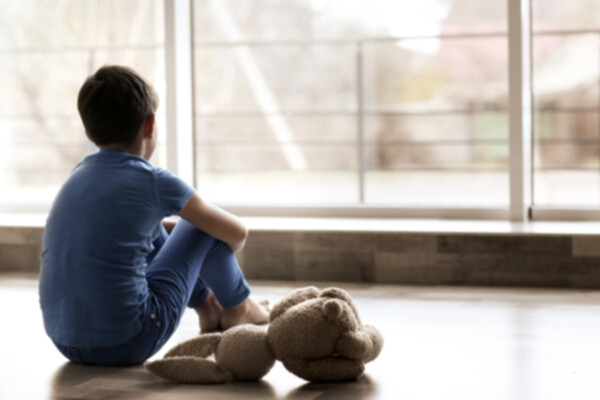
How to detect depression in children?
In order to detect the signs of depression in children It is important to keep in mind that this disorder presents very differently to adults. For example, symptoms such as irritability and anger may be much more common as symptoms of depression in adolescents or children. Another characteristic of childhood depression is precisely that children usually find it more difficult to explain how they feel, so it may be more difficult to detect this disorder. Thus, some of the most common signs of depression that have been detected are the following:
- Changes in appetite or weight
- Feeling or appearing depressed, sad, tearful, or irritable
- Constant fatigue or lack of energy
- Feeling guilty or ashamed
- Have more trouble concentrating
- Loss of interest or pleasure in activities you previously enjoyed
- Psychomotor slowing or agitation (doing things slower or faster)
- Talk or ask about death
- Sleep disturbance: insomnia or hypersomnia almost every day
In addition to the above symptoms, some children have physical complaints, such as stomachaches and headaches, substance use, and poor school performance.
Causes of childhood depression
The depressive states They do not arise either because of the weakness of the children or because of the attitude of the parents. There are some causes that can cause depressive symptoms to appear.
- Biological factors: There is evidence to show that imbalances in certain neurotransmitters and hormones can influence brain function. These states can affect mood, as well as emotions and increase the risk of suffering from a childhood depression
- Genetics: Children with family members who have suffered from certain mood disorders, such as depression, are at greater risk of experiencing these depressive states
- Stress or trauma: Sudden changes, as well as a stressful or unstable family environment, can cause children to suffer from childhood depression
- Bullying or bullying: The childhood depression It can be caused by a bad school environment. In this way, detecting bad behavior on the part of classmates must be taken into account when seeing a sad child.
Although these are the main causes of childhood depression, the reality is that many are related to the environment or genetic causes. Depression in children arises from a combination of these two factors, for this reason it is important to review the environment and genetics of the children.
How to treat depression in children?
There are various methods to try to alleviate the childhood depression or even to prevent these feelings in children.
- Prevention programs: Prevention programs have a double objective: on the one hand, to enrich the child’s environment increasing their satisfaction, for example by modifying educational and social aspects and, on the other hand, providing the child with coping skills in difficult and stressful situations. Psychoeducation in prevention programs is very important, most of the time parents, as has been said, do not know what to do and must be aware of the changes that must be made, including motivation and communication as keys in the beginning of good prevention.
- Create a good family environment: Imbalances in the couple and therefore in the family, affect a systemic imbalance, resulting in family conflicts, unsatisfactory relationships, etc., which is why it is necessary for parents to know how to develop social and positive interaction skills that make the child grow and raise a child in a positive way and with an environment rich in stimuli that provides stability, well-being and satisfaction. It can be said that a secure attachment is one of the best preventions for depression that exist, by instilling in the child security and strengthening in the face of stressful situations.
- Encourage positive thinking or attitude: Detecting abilities or skills in children and reinforcing them in a positive way will help the child develop attitudes of interest and more enriching experiences. This experiential development is essential today when children find themselves “involved” in games and new interactive technologies. Parents must be consistent in their use, since different studies have shown that indiscriminate use of Tics is linked to isolation, depression and anxiety.
- Reduce time with technology: Addiction disorders to games and mobile phones, and misuse of social networks or cyberbullying actions, in processes of belonging to reference groups, produce in the adolescent a decrease in self-esteem and personal worth, leading to suffering, emptiness , and if you do not tell your parents or teachers, they can lead to anxiety disorders, severe depression and even suicide.
- Teach psychological skills: On the other hand, in the line of providing the child in skills so that they learn to face stressful situations and even turn them into successful situations, we highlight:
-
- Skills emotional control such as relaxation programs (Cautela and Groden, 1985)
- Skills mental control such as those of Meinchenbaum’s self-instructions (1987)
- Skills behavioral such as those based on frustration tolerance and assertiveness.
In all these skills programs within preventive action, parents once again play an important role, by educating their child with full emotional intelligence, teaching the child from a young age to know their emotions and those of others, developing empathy. , resilience in the face of difficult situations and assertiveness in the development of social situations and with their peers, together provide the emotional skills child, and behavioral that will help you live in harmony and, above all, be happier. “Know yourself and you will win.” These skills can be learned with the help of a child psychologist through their therapy sessions.
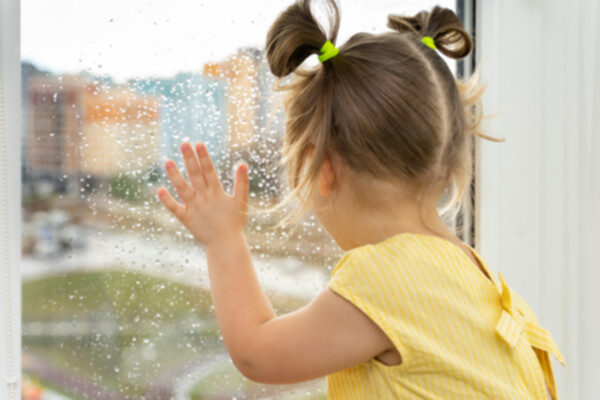
Childhood depression and its treatment
If you think your child has depression or see that you can identify many of the characteristics of childhood depression that we have mentioned in their behavior, it is vital that you go to a doctor or a professional psychologist. In these cases, the most common treatment for depression in children is usually psychotherapy. Still, if the symptoms of depression are very severe, some doctors may recommend a combination of therapy and medications.
How can parents help with childhood depression?
Parents play a vital role in emotional development and children’s staff therefore they must have a special role in these situations.
- Retrieve or propose new activities pleasant for our children
- Generate spaces for comprehensive dialogue searching for the possible cause of the discomfort and proposing alternative and positive solutions.
- Maintain routines (they give security and stability to the child).
- Consult with a professional
If he depressive disorder If not treated in a timely and adequate manner, it can affect the development of the child’s social, emotional and thinking skills, as well as their emotional ties, increasing the risk of alcohol and drug abuse, worse academic, social and work performance, and risk of suicide.
That is why it is of great importance for parents and teachers to detect the behaviors mentioned above in order to be able to refer them to a child psychologist that assesses the problem and can provide strategies to


